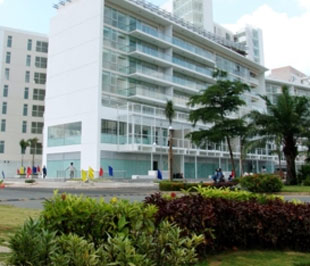
| Real estate valuation institutions still outside the ‘playing field’ | |
Real estate valuation institutions are still playing a minimal role in the real estate market, which explains why investors cannot get the information they want when they are considering investment decisions. Five institutions give ten different prices According to Truong Thai Son, a member of the Standing Committee of the Vietnam Valuation Association, there are 200 member property valuation firms, including three foreign-owned ones, namely CB Richard Ellis Vietnam (CBRE), Collier International and Savills Vietnam. Meanwhile, Pham Van Binh from the Finance Academy said that the valuation institutions have still not become fully active. In theory, when property prices are pushed up to abnormally high levels, these institutions provide information about the actual value of properties and give reliable price forecasts. In fact, property valuation institutions in Vietnam well know that speculators have deliberately pushed prices up, but they have not issued any warnings to which people can refer to when making investment decisions. However, the chief problem lies in the fact that there are contradictions in property appraisals in Vietnam. Real estate experts believe that real estate in Vietnam is now the most expensive in the world. Meanwhile, Deputy Minister of Construction Nguyen Tran Nam said that real estate prices in Vietnam are still lower than in other countries in the region, while the average price is just the 19th or 20th highest in the world. Meanwhile, property valuation institutions themselves also give different forecasts about prices. Lack of transparency hinders land valuation Binh from the Finance Academy believes that what most hinders property valuation institutions from assuming their proper role in the market is the lack of transparency. He said that it is more difficult to appraise properties in Vietnam than in other countries. In order to give an accurate valuation, valuators need to have adequate information about the market and related factors including legal status, land programming and financial duties of properties. However, only government agencies and big corporations can access such information. In last year’s RETI ((Real Estate Transparency Index) released by Jones Lang LaSalle, an international real estate service group, Vietnam was put in group 4, the group with low transparency index. Deputy Minister of Construction Nguyen Tran Nam also admitted that a lot of things needed to be done to increase the transparency of the market. In fact, people still do not use the valuation services of private valuation institutions. The training of real estate valuators is carried out haphazardly, and people are largely suspect of their qualifications. In many cases, the real estate valuation certificate granted by the Ministry of Finance is not accepted by other government agencies when considering granting licences to open real estate trading floors which provide valuation services. | |
| VnInfoGate.Com |
